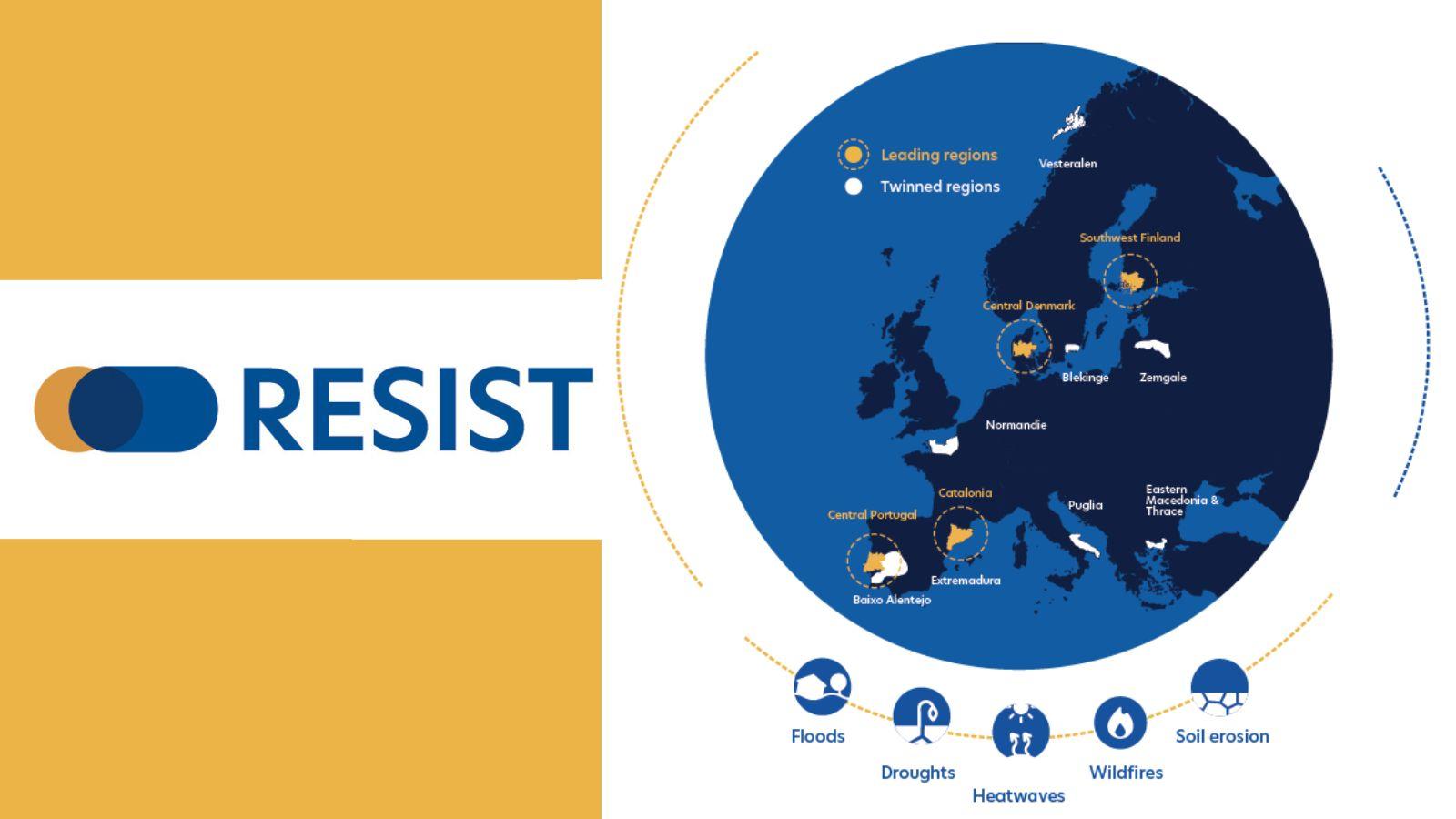
Existing private solutions to foster citizens' engagement in Climate Change adaptation activities
On 18 April, the RESIST project, in which ERRIN is a partner, organised a webinar for the stakeholders from the regional ecosystems involved in the project. The webinar focused on existing solutions to foster citizens' engagement in Climate Change adaptation activities.
During the event, three solutions were presented:
CoTowns: technology to reward citizens who contribute to a sustainable urban environment.
CoTown is a new and innovative startup that offers services and solutions for cities that aim to become more sustainable. This technology provides civic engagement programmes and a platform that empowers communities and engages citizens in behavioural change. People are encouraged to develop positive behaviours, which are rewarded with a local digital currency. This currency can be used to support local businesses and make it easier for people to give back to their community. By promoting positive behaviours and offering incentives, CoTown makes it easier for people to get involved in local support efforts.
Maptionnaire: a platform to design and manage community engagement.
Maptionnaire is a digital tool for marking places, routes, and spaces on a map, facilitating the sharing of experiences and opinions. It helps collect data from stakeholders and residents to facilitate decision-making processes. The tool generates standardised reports based on responses, fulfilling bureaucratic requirements. The engagement webpage allows comments and feedback, making collaborations simple and inclusive. Maptionnaire aims to increase transparency and trust in local communities and involve them in decision-making.
MI4pADAPT DiY manual for Stakeholder and Citizen engagement.
This manual was created as part of the EU Mission Implementation Platform for Adaptation to Climate Change (MIP4Adapt) and is intended for regional and local authorities. It aims to help them engage stakeholders and mobilise citizens in climate change adaptation planning. The manual provides guidance on the six main steps of the climate change adaptation planning process outlined in the Regional Adaptation Support Tool (RAST) and offers proven tools and methods to facilitate a "whole-of-society" approach that includes everyone. The manual is based on four key concepts: communication, engagement, connection, and action enablement.
In the upcoming months, RESIST will launch a call for Regions interested in joining the Community of Interest project and participating in its mutual learning programme.
The RESIST project is a five-year EU-funded project coordinated by SINTEF in collaboration with INOVA+, which will support twelve regions across the EU in their efforts to build resilience against the impacts of climate change. Three ERRIN members: Southwest Finland, Central Denmark, Catalonia, and the fourth region of Central Portugal will be the frontrunner regions (Large-Scale Demonstrators - LSDs) testing adaptation solutions to key climate-related challenges in their area. Each of these four regions will be twinned with two other regions with similar biophysical characteristics. Southwest Finland will work with Normandy (France) and Eastern Macedonia and Thrace (Greece); Central Denmark with Blekinge (Sweden) and Zemgale (Latvia); Catalonia with Puglia (Italy) and Baixo Alentejo (Portugal), and Central Portugal with Vesteralen (Norway) and Extremadura (Spain), many of them being ERRIN members.
The project, in accordance with the EU Mission: Adaptation to Climate Change and through its four pilot regions, will test adaptation solutions to five key climate challenges: floods, droughts, heatwaves, wildfires, and soil erosion. The project involves 56 partners from the EU, Norway and Ukraine.
- Gaia Ialisa Marotta
- 23/04/2024
-
Members
-
Working Group
